Our hearts go out to the victims of the terrorist attack on the Tennessee Valley Unitarian Universalist Church in Knoxville. In a candlelight vigil on Tuesday, Unitarian Universalist president William Sinkford stated, “We’re here tonight to make sense of the senseless.”
However, there was nothing senseless in the thinking of the killer, Jim Adkisson. His plan, his motivation and attitude toward his victims, and his expectation of his own bloody demise were a localized expression of the universal spiritual dynamic laid out nearly 2000 years ago in the Apocalypse of John.
As explained earlier in this blog, AUR considers the religious importance of the Apocalypse to be in its typology of evils. The Apocalypse is not a historical, physical one-time event for Reform Unitarianism the way it is for churches that indulge in materialist exegesis; it is a spiritual dynamic in action in our lives at all times. The Apocalypse is not on its way, it is at hand. It always has been, and it always will be.
The Typology Of Evils
The Beast in John’s Apocalypse represents the violent and authoritarian evil of Rage, while Babylon is the licentious and libertine evil of Lust. In John’s eschatological vision, the Beast and Babylon are closely related, but in tension. Wanton Babylon is described as riding the resentful Beast, who then rises up in hatred and destroys Her.
Adkisson clearly considered the Unitarian Universalists his Babylon, a physical manifestation of the spirit of wanton licentiousness. A longtime acquaintance told a local newspaper that Adkisson hated “blacks, gays and anyone different from him,” and one of the investigators told reporters that Adkisson “stated that he had targeted the church because of its liberal teachings and his belief that all liberals should be killed because they were ruining the country.”
However, despite that it demonstrated the Bestial nature of his own sin, the killer’s prejudice against his targets was ultimately proven wrong.
The Apocalyptic Saints
In the Apocalypse, the false god of the Beast lays seige to the false city of Babylon to destroy it. After the destruction of Babylon, the Beast is confronted and defeated by the Saints of New Jerusalem, a true city of the true God. That Adkisson was playing out this spiritual dynamic is clear in that, according to police reports about a letter written just before the attack, “he expected to be in [the church] shooting people until the police arrived and that he fully expected to be killed by the responding police.”
Manifesting the spirit of Bestial Rage, Adkisson believed he would lay waste to the Babylon he saw in Unitarian Universalism, and in turn be destroyed by the police, who were to play the role of the righteous Saints.
But, he was wrong. The congregation tackled their assailant, disarmed him, and held him for police. They were not passive victims, but full participants with the proper authorities, ready to employ the force necessary to defeat his unrighteous violence.
As a resentful and angry terrorist, Adkisson was certainly playing the Beast, but the Unitarian Universalists he attacked were by no means about to play limp Babylon to his assault. They stood up and fought back, and for that they deserve to be honored and congratulated.
Moreover, they deserve to understand the sense of the spirit in which they resisted tyranny, the reconciled and righteous force of the Saints of the Apocalypse.

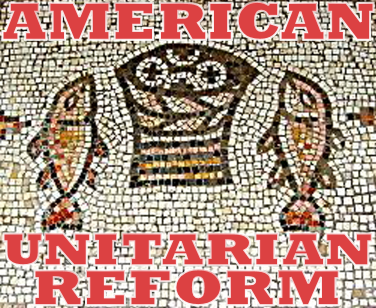 American Unitarian Reform has now joined the tweeting masses on Twitter!
American Unitarian Reform has now joined the tweeting masses on Twitter!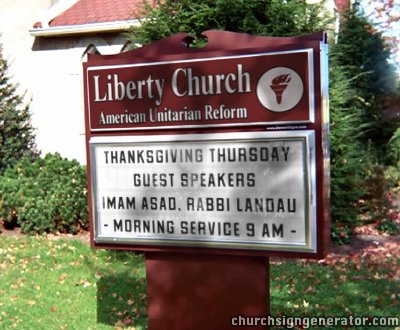
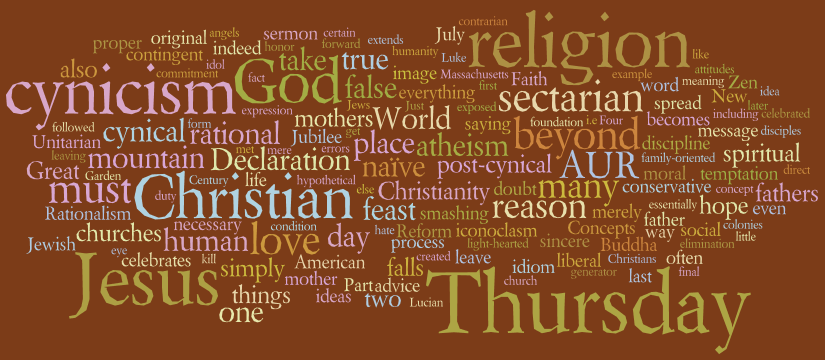
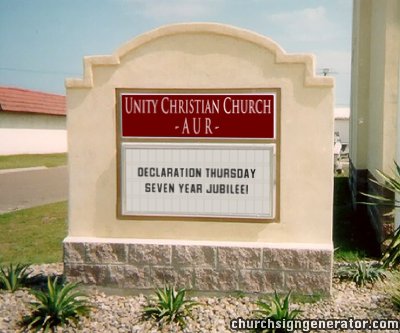
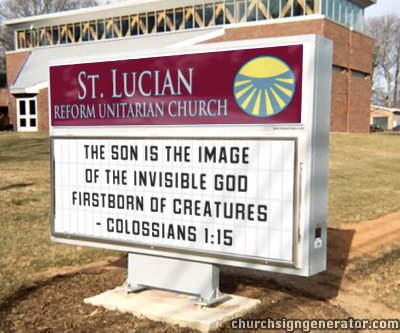
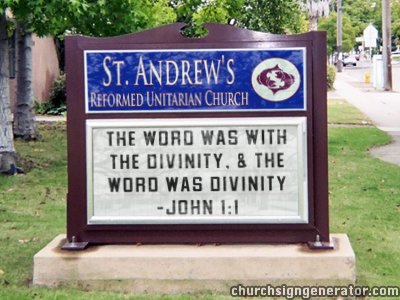
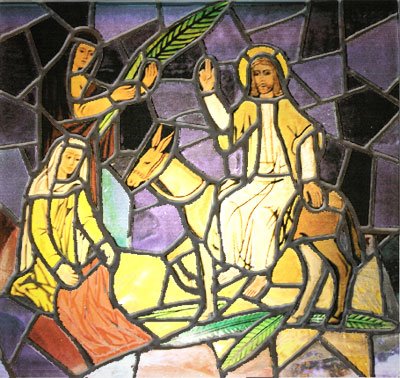 Palm Sunday commemorates the day Jesus entered Jerusalem on the back of a colt (or donkey) with throngs of Messianic enthusiasts paving the way with palm fronds. Celebrations of this holiday therefore often include palms.
Palm Sunday commemorates the day Jesus entered Jerusalem on the back of a colt (or donkey) with throngs of Messianic enthusiasts paving the way with palm fronds. Celebrations of this holiday therefore often include palms.